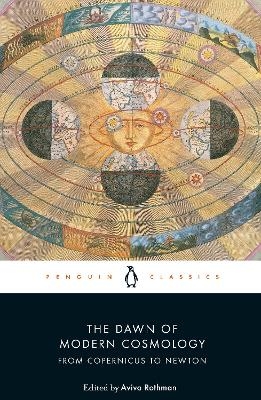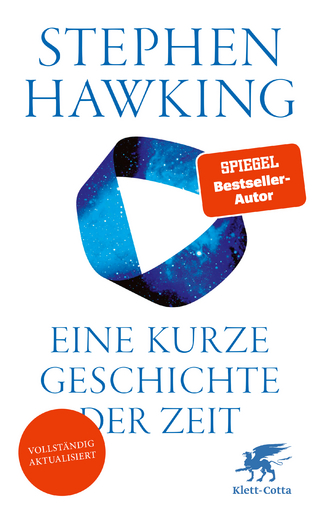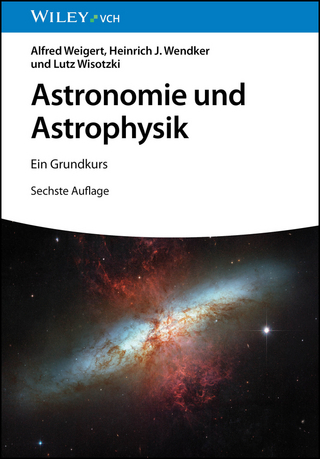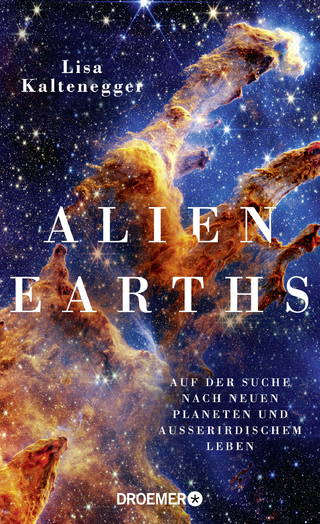
The Dawn of Modern Cosmology
Penguin Classics (Verlag)
978-0-241-36063-7 (ISBN)
In the late fifteenth century, it was believed that the earth stood motionless at the centre of a small, ordered cosmos. Just over two centuries later, everything had changed. Not only was the sun the centre of creation, but the entire practice of science had been revolutionised. This is the story of that astonishing transformation, told through the words of the astronomers and mathematicians at its heart. Bringing together excerpts from the works and letters of Copernicus, Galileo, Kepler, Descartes, Newton and others for the first time, The Dawn of Modern Cosmology is the definitive record of one of the great turning points in human history.
Edited with Translations, Notes and an Introduction by Aviva Rothman
Aviva Rothman (External Editor, Translator) Aviva Rothman is Associate Professor of History at Case Western University. She is a historian of science whose work focuses on the early modern period, and is the author of The Pursuit of Harmony: Kepler on Cosmos, Confession and Community (University of Chicago Press, 2017).
Introduction
A Note on Translation
Timeline of Key Events
Hartmann Schedel, Seventh Day from Nuremberg Chronicle, 1493
Nicolaus Copernicus, Little Commentary, 1514
Georg Joachim Rheticus, First Account, 1540
To the Reader, Copernicus, On the Revolutions of the Heavenly Spheres, 1543
Copernicus, Prefatory Material from On the Revolutions of the Heavenly Spheres, 1543
Copernicus, Book One, On the Revolutions of the Heavenly Spheres, 1543
Copernicus, Heliocentric System from On the Revolutions, 1543
Copernicus, Tusi Couple from On the Revolutions,1543
Erasmus Reinhold, Prutenic Tables, 1551
Robert Recorde, The Castle of Knowledge, 1556
Tycho Brahe, On the New Star, 1573
Thomas Digges, A Perfect Description of the Celestial Orbs, 1576
Digges, Frontispiece, A Perfect Description of the Celestial Orbs, 1576
Diego de Zúñiga of Salamanca, Commentary on Job, 1584
Giordano Bruno, Ash Wednesday Supper, 1584
Tycho Brahe, On Recent Celestial Phenomena, 1588
Johannes Kepler, Cosmographic Mystery, 1596
Galileo Galilei and Kepler, Correspondence, 1597
Brahe, Instruments of a Restored Astronomy, 1598
William Gilbert, On the Magnet, 1600
Kepler, The Dream, 1608 (published 1634)
Kepler, A New Astronomy Based upon Causes, or Celestial Physics, Treated by Means of
Commentaries on the Motions of Mars, 1609
Kepler, Orbit of Mars, from New Astronomy, 1609
Galileo Galilei, The Starry Messenger, 1610
Kepler, Conversation with The Starry Messenger, 1610
Kepler, Dioptrics, 1611
John Donne, ‘First Anniversary: An Anatomy of the World’, 1611
Christoph Scheiner and Galileo, Letters on Sunspots, 1612–1613
Galileo, Letters on Sunspots, Image of Sunspots, 1613
Galileo, Letter to Benedetto Castelli, 1613
Simon Marius, The Jovian World, 1614
Johannes Locher, Mathematical Disquisitions Concerning Astronomical Controversies
and Novelties, 1614
Paolo Antonio Foscarini, Letter on the Pythagorean and Copernican Opinion about the Mobility
of the Earth, 1615
Robert Bellarmine, Letter to Foscarini, 1615
Galileo, Letter to the Grand Duchess Christina, 1615
Galileo and the Inquisition, 1615–1616
Kepler, Epitome of Copernican Astronomy,
Book One, 1618
Kepler, The Harmony of the World, 1619
Kepler, Epitome of Copernican Astronomy, Book Four, 1620
Tommaso Campanella, Apologia for Galileo, 1622
Galileo, The Assayer, 1623
Galileo, Phases of Venus from The Assayer, 1623
Kepler, Frontispiece, Rudolphine Tables, 1627
The Vatican Secretary to the Florentine Inquisitor, 24 May 1631
Galileo, Dialogue on the Great World Systems, Ptolemaic and Copernican, Frontispiece and
Title Page, 1632
Galileo, Dialogue on the Great World Systems, Ptolemaic and Copernican, 1632
Campanella, Letter to Galileo, 1632
Galileo, Trial Documents, 1632–1633
René Descartes, The World, or a Treatise on Light, c.1629–1633
Descartes, Letters to Mersenne, 1633–1634
Galileo, Discourses and Demonstrations on Two New Sciences, 1638
John Wilkins, A Discovery of a World in the Moon, 1638
Francis Godwin, The Man in the Moon, or A Discourse of a Voyage Thither by Domingo Gonsales, 1638
Wilkins, Frontispiece, A Discourse Concerning A New World & Another Planet, 1640
Descartes, Principles of Philosophy, 1644
Giovanni Battista Riccioli, New Almagest, 1651
Riccioli, Frontispiece, New Almagest, 1651
Riccioli, Map of the Moon, from New Almagest, 1651
Andreas Cellarius, Frontispiece, Celestial Atlas, or Macrocosmic Harmonies, 1660
John Milton, Paradise Lost, 1667
Johannes Hevelius, Celestial Machine, 1673
Robert Hooke, An Attempt to Prove the Motion of the Earth by Observations, 1674
Bernard Le Bovier de Fontenelle, Conversations on the Plurality of Worlds, 1686
Edmond Halley, Opening Poem to Isaac Newton, Mathematical Principles of Natural Philosophy (Principia), 1687
Isaac Newton, Mathematical Principles of Natural Philosophy (Principia), 1687
Newton, Parabolic Path of a Comet from Mathematical Principles of Natural Philosophy (Principia), 1687
Newton, General Scholium from Mathematical Principles of Natural Philosophy (Principia), Second Edition, 1713
Newton, A Treatise of the System of the World, 1728
Frontispiece, Andrew Motte’s English Translation of Book 1 of Newton’s Mathematical Principles of Natural Philosophy, 1730
Voltaire, Frontispiece, Elements of the Philosophy of Newton, 1738
James Ferguson, Astronomy, Explained upon Sir Isaac Newton’s Principles, and Made Easy to Those Who Have Not Studied Mathematics, 1756
Appendix: Other Translations and Works of Interest
Index
| Erscheinungsdatum | 19.09.2023 |
|---|---|
| Verlagsort | London |
| Sprache | englisch |
| Maße | 129 x 198 mm |
| Gewicht | 459 g |
| Themenwelt | Sachbuch/Ratgeber ► Natur / Technik ► Weltraum / Astronomie |
| Naturwissenschaften ► Physik / Astronomie ► Astronomie / Astrophysik | |
| ISBN-10 | 0-241-36063-3 / 0241360633 |
| ISBN-13 | 978-0-241-36063-7 / 9780241360637 |
| Zustand | Neuware |
| Informationen gemäß Produktsicherheitsverordnung (GPSR) | |
| Haben Sie eine Frage zum Produkt? |
aus dem Bereich


